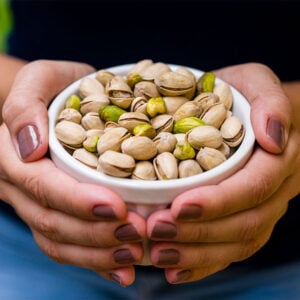
"Brain Fertilizer" ENDS Senior Moments!?
Yesterday, I explained how aging mitochondria can trigger disturbing “senior moments.”
If you missed that issue, you might want to read it first. (CLICK HERE to catch up.)
You see, when your mitochondria become less efficient—or the production of NEW ones slows down— you end up with an overall energy shortage.
And in the brain, that can lead to brain fog, difficulty concentrating, and memory slips.
But, research has revealed a way to REVERSE age-related mitochondrial dysfunction.
There’s a natural, mind-boosting duo that restores youthful brain function.
PQQ (pyrroloquinoline quinone) is a newly discovered vitamin-like compound. Studies show this powerful antioxidant offers excellent protection for your brain.
You likely haven’t heard of PQQ before. Heck, I know plenty of doctors who haven’t, either.
But this powerful nutrient will become a household name soon enough because it has a unique ability to help your body produce brand-new mitochondria.
First, PQQ is a stimulator of the PGC 1alpha, which triggers mitochondrial biogenesis.
Second, it increases cAMP response element-binding protein (CREB). This vital protein regulates the production of new mitochondria and increases brain-derived neurotrophic factor (BDNF), which is like fertilizer for the brain.
PQQ also helps protect existing mitochondria. A study conducted at the University of California at Davis found that PQQ is up to 5,000 times more efficient in sustaining mitochondrial energy production than other more well-known antioxidants.
PQQ can improve performance in…
- memory
- concentration
- mental alertness
It can ALSO boost blood flow in the area of the brain involved in problem-solving, memory, judgment, and more.
But for even MORE brain-boosting power, combine PQQ with Coenzyme Q10 (CoQ10). CoQ10 is well-known for supporting optimal mitochondrial FUNCTION.
In fact, the combination is so impressive that researchers say a daily dose of PQQ and CoQ10 could help reverse age-related cognitive decline.
PQQ naturally occurs in almost all foods but is especially concentrated in soybeans, green tea, green peppers, parsley, spinach, kiwi fruit, and field mustard.
You can also get PQQ and CoQ10 together in a supplement.
P.S. Still battling brain fog? CLICK HERE to discover four MORE key nutrients I recommend to break through the haze.
Source:
Klinman JP, et al. “Intrigues and intricacies of the biosynthetic pathways for the enzymatic quinocofactors: PQQ, TTQ, CTQ, TPQ, and LTQ.” Chem Rev. 2014;114(8):4343-65.
View More Free Articles
5 Ways to “Beat the Bloat” This Thanksgiving
As we prepare for Thanksgiving week, there’s a lot to look forward to and be thankful for. Family gatherings, football games, great food, and even better desserts top the list. Then there are all the leftovers. It’s not a holiday that’s known for moderation. But if you’re not careful, overdoing it on Thanksgiving could leave […]
Eat THIS to Reduce Your Risk of 14 Cancers
I’m a meat-and-potatoes guy. I’ll never turn down a big, juicy steak. But even more than that… I’m a fish guy. There’s not much I like more than a perfectly grilled salmon. I hope you do, too, because salmon contains two potent nutrients tied to a reduced risk of 14 types of cancer. Omega-3s are […]
The Bad Habit Robbing YEARS from Your Life
I often get eye-rolls when I stress just how essential lifestyle factors like light reducing pollution and grounding are good for health. But new research continually proves that I’ve been right all along. Today, a critical new study shows that something I’ve warned you about for YEARS is tied to a 34 percent increased risk […]
Reduce Colon Cancer Risk by 30%
More than 150,000 people are diagnosed with colorectal cancer yearly. Another 35,000 will get a liver cancer diagnosis. But if you have type 2 diabetes, your risk of developing one of these skyrockets—a 47 percent increased risk of colorectal cancer, and a two to three times higher risk of liver cancer. That’s why I’m excited […]
“Dinner Plate” Danger Raises Prostate Risk
Did you know that prostate cancer is FAR more prevalent in developed parts of the world than in less developed regions? Strange right? What is it about our modern, developed society that’s attacking our male population? There are MANY answers to this question. The primary one I will focus on today is a significant environmental […]
The 5-Minute Solution to Better Blood Pressure
Are you one of the millions who battle the so-called “silent killer” hypertension? And do you have five minutes to spare daily? If so, you could be well on your way to significantly healthier blood pressure. Sound too good to be true? A new study proves it. And the best part? It’s incredibly easy If […]
“Eye-Opening” Benefits of Pistachios
Imagine if there were a daily snack that could protect your vision. Well, a recent study brings good news for the 20 million U.S. adults already battling macular degeneration—the leading cause of vision loss for those over 60. Adding a handful of pistachios to your diet might help shield your eyesight. Let’s take a “look.” […]
Get Better Blood Sugar This Holiday Season
Let’s face it. The holidays are NOT good for your waistline… or your blood sugar levels. Potlucks, family dinners, cookie exchanges, Christmas parties… you know the drill. So, if you’re one of the 98 million people on the brink of type 2 diabetes, it’s VITAL to take steps to manage your blood sugar levels as […]
Common Vitamin Is a Hidden Colon Cancer Shield
With aggressive colon cancer on the rise in younger people, I’m always on the lookout for research showing how we can all lower our risks. Over the past few months, I’ve shared studies showing that stress, oral bacteria, obesity, and circadian disruption are all tied to colon cancer. And just last week I revealed how […]
Ditch Dieting for Better Blood Sugar Control
I’ll just say this right upfront… Type 2 diabetes is a lifestyle issue. And while diet is PART of the equation, it’s not the only thing to consider when managing your blood sugar. Over the past few months, I’ve highlighted research showing that factors like your bedtime and activity levels impact diabetes risk. Today, I […]










